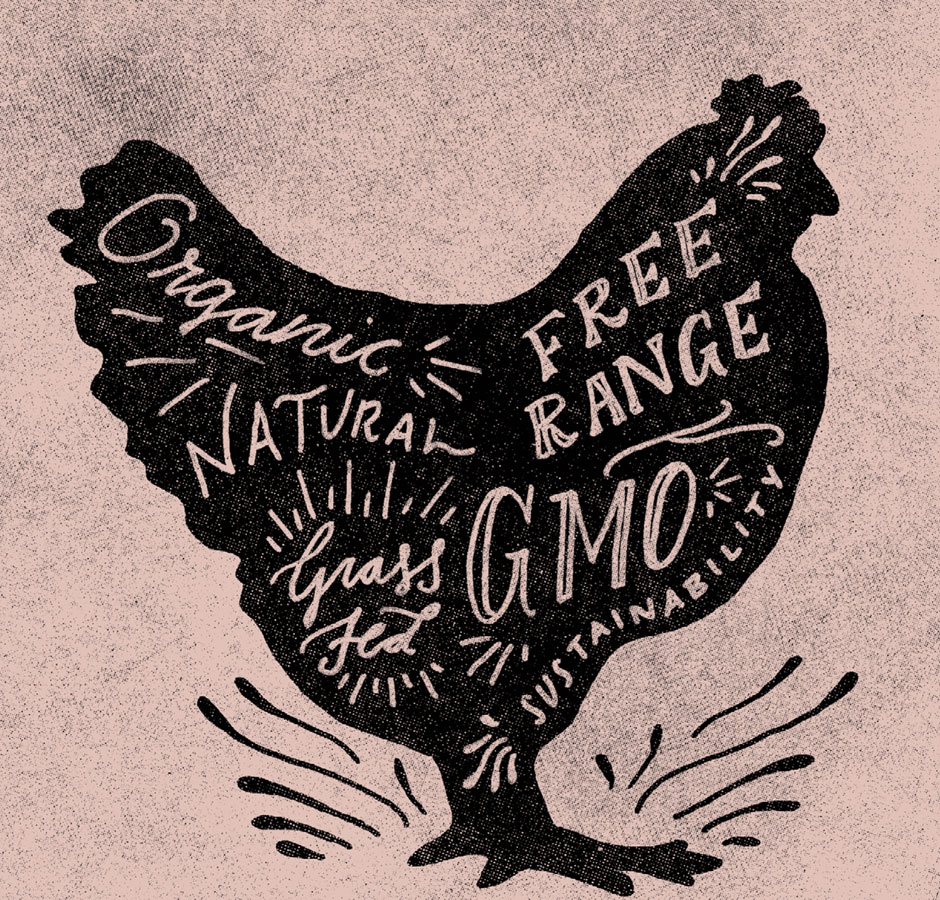Farm Terms: A Glossary
These farm terms are frequently used as buzz words for healthier eating. Learn them to be a smarter eater.
ORGANIC Organic produce and meats are not necessarily healthier than their conventional counterparts, but they can be less unhealthy. Organic produce is grown without the use of synthetic fertilizers or pesticides, and livestock are raised without growth hormones or excessive antibiotics. Many small farmers who forego the use of these potentially harmful substances still find the official USDA certification process to be overly demanding, so your best bet is always to get to know your local purveyors.
FREE RANGE Happier animals taste better. The USDA only officially applies this term to poultry & eggs, but common sense tells us that any animal allowed to graze naturally is healthier and happier. Technically, free range animals simply “have access to outdoor spaces,” which could be small areas for a limited time, so buying from smaller local or regional farms may be best.
SUSTAINABILITY Modern “conventional” agriculture practices have increased yields to meet our growing population, but the trade-off has often been soil degradation, erosion, and pollution. Managing our environment is the greatest challenge we confront as a society. A sustainable food system allows for the long-term health of the surrounding environment, is economically viable, and enhances both farmers’ and consumers’ quality of life. If that sounds like a tall order, bear in mind it’s a challenge that we have no choice but to meet.
GRASS FED Just about any air-breathing animal can be raised entirely or partially on grass (be wary of anyone advertising grass fed fish), though omnivores like pigs & poultry may need some additional nutrients. Grazing and foraging results in meat that is leaner, and—to many—tastier. Often grass fed animals are “grain finished” to add marbling (a fancy word for fat) to the meat, and several organizations offer grass fed certifications to indicate that animals are also free of antibiotics and hormones.
GMO (genetically modified organisms) Humans have been selectively breeding plants for thousands of years to produce desirable traits like plentiful fruit or resistance to cold. In recent decades, lab scientists have been able to artificially manipulate plants’ DNA, sometimes in service of the public good (such as rice modified to be high in vitamin A), though often in pursuit of purely commercial goals. While there is a general consensus among researchers that GMO plants are not inherently harmful, there is still much we don’t yet know.
NATURAL Sounds good, right? Often, this term is applied to foods (with labels such as “all natural”) that are minimally processed and which contain no artificial colors or flavorings. Many products containing the term “natural” are good faith efforts by folks that couldn’t quite meet the strict standard for organic labeling. But with no regulatory guidance from the FDA or USDA, it’s best to take the opportunity to investigate further.









